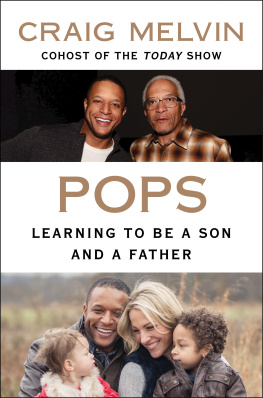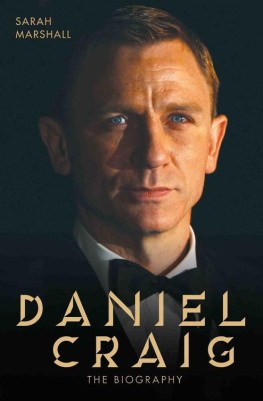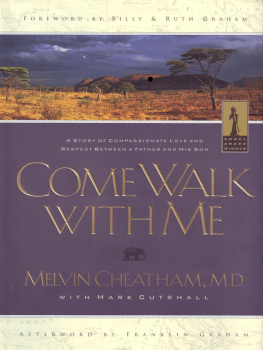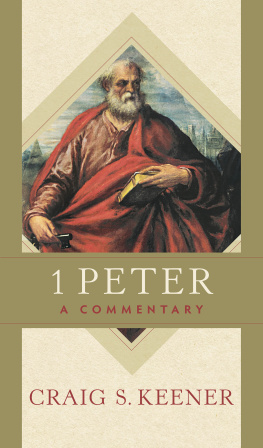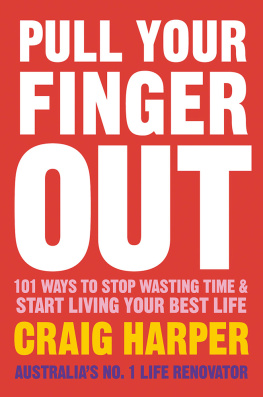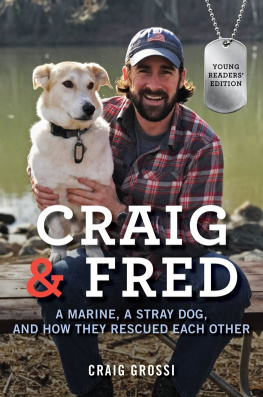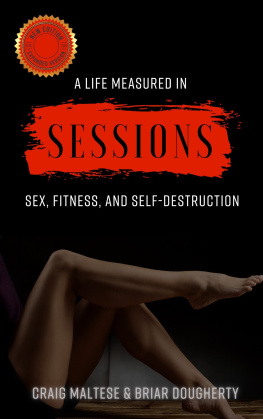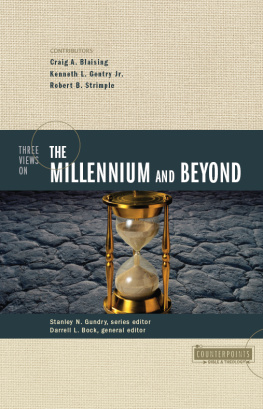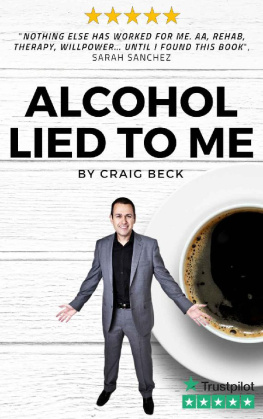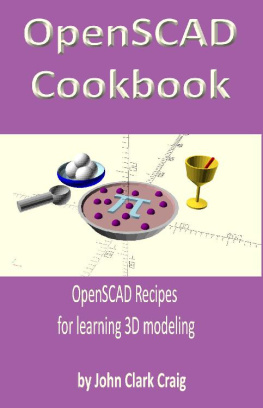Contents
M y father was born in 1950 in a federal prison in West Virginia. That is a heavy burden to carry into life, but he and I never talked about it, not for decadesnot until I was forty-one, when I sat down to write this book. We never talked about why my grandmother had been imprisoned or for how long. We didnt talk about what, if anything, he remembered about her imprisonment, or who cared for him until she was released. We also didnt talk about his fathers alcoholism, or the way his father squandered his life and nearly died alone. We didnt talk about how that legacy has affected him across his seventy years on this earth. We didnt talk about whether his fathers problems contributed to his own alcoholism. We didnt talk about how his parents not being present probably led him to not being around as much as he wanted when he became a father to my two brothers and me. We didnt talk about what toll those absences took on his marriage to my mother, or why they stayed together when they had so many reasons not to.
We had a lot of ground to cover, my father and I. It took work and time, but weve come to a good place, and this book is the story of both our journeys to get there, separately and together. Its also the story of my larger family, and the love and faith that, despite some dark times and big obstacles, have bonded us through generations.
For me, part of this journey involved becoming a father myself. I have two children: my son, Delano, whos seven, and my daughter, Sybil, whos four. Being Del and Sibbys dad has made my life richer in ways I never could have imagined. Like most fathers, I have to juggle the responsibilities of parenthood along with the responsibilities of work, marriage, being a son and brother myself, and all the other roles and activities that make up a busy modern life. Sometimes its hard. Often I feel like Ive fallen short in one way or another. In fact, Ive yet to meet the father or mother who doesnt feel that way.
All of which is to say that I now see my own father through a very different lens than I did when I was growing up in the 1980s and 90s in Columbia, South Carolina. Lawrence MelvinPops, to mewasnt a fun drunk, if there even is such a thing. He could be mean. He was distant and antisocial. When his drinking got really bad, as it increasingly did when I became a teenager, his speech would slur, and more than once he threw up on himself while he was passed out in his bed. When he was home, he was usually in that bed, which was such a fixture of my childhood. Hed lie there watching sports, black-and-white episodes of Perry Mason, and Lifetime movies (yes, seriously). Mostly, though, hed be watching his eyelids. Partly that was due to his drinking, but it was also a function of his job at the Columbia post office and the hours he worked as a mail clerk on the third shiftthe graveyard shift.
That was a choice: you make a few more bucks when you work the third shift, but you sleep during the day. You get up in the afternoon, sometimes as late as six or seven in the evening. You go to work at ten or eleven at night. So in the mornings, when I would be heading off to school, Pops would be walking back in the door. This went on for the better part of my childhood. Consequently, he almost never made it to my Little League games. He wasnt around for most school events. He missed a lot of my childhood. Frankly, even when he was around, even when he was sober, he was often sullen and remote. I resented his absences and his emotional distanceand for years, even decades, I couldnt see past that.
Pops has two other sonsmy older half brother, Lawrence, and my younger brother, Ryan. For a long time, the three of us didnt understand alcoholismits crippling nature, the damage longtime alcohol abuse does to the brain. We blamed Pops. We assumed he was weak. We thought, Pops is just a drunk. He could get his drinking under control if he really wanted to. From my perspective, this was more or less a fact of life: I had a lousy dad. End of story.
But as I said, when you have your own children, you become more aware of the sacrifices fathers make to provide for their families. I began to see the toll living took on my dad: what he gave up; how things might have looked through his eyes while he worked a tough job with brutal hours to put food on our plates and a roof over our heads. Ive also come to realize that Pops wasnt just a drunk. He was sick. He was an addict. He is an addict.
You can see that my feelings about my father and my childhood are complicated and that Im still sorting them out. The same with my feelings about fatherhood in general. Thats part of the reason Im writing this book. At a basic level, my job as a journalist is to ask people questions and tell their stories; Ive been doing that professionally for two decades now. But here I want to turn the camera around, as it were, and ask myself some tough questions, and ask my parents some tough questions, too, so that I can tell the stories of Lawrence and Craig Melvin, and what being fathers and sons has meant to both of us, as honestly and thoughtfully as I know how. To me, this book isnt a memoir; its an investigation. The subject just happens to be personal.
ONE THING IVE LEARNED AS A journalist is that every storyeven your ownneeds context. I cant say I planned things this way, but Ive reported a lot of stories about family issues over the years, and since Ive been on the Today show, Ive done quite a few pieces focused on fatherhood. Is it possible Ive been circling the subject as a subconscious way to understand my own history? I wouldnt argue the point.
Maybe most memorable for me was a story we did for the Today show in 2019 on Camp Grace, a program for fathers at Salinas Valley State Prison in Central California. This prison is a maximum security facility, housing over three thousand men; its among the toughest prisons in the country. Many of the guys have been in for a while, and some of them are going to be in for quite a while longer. Many have been convicted of violent crimesthese arent just street hustlers caught selling dime bags. But for five days every summer the prison hosts a day camp for inmates and their children, complete with crafts, games, dancing, and most important, the kind of quiet one-on-one time and physical contact that inmates and their families arent allowed under normal visitation rules.
For the men, the price of admission is a year of good behavior. This is a big incentive to do good, said Jonathan Badilla, an inmate convicted of attempted murder. I met him at Camp Grace with his two young children, Lailani and Jonathan Jr. I feel very blessed to be here, Jonathan told me, his arms around both kids. As several of the other men explained, its not that their children cant visit other times of the year, but when they do, its usually with their mother or a grandparent or some other guardian, and the visits take place in a crowded, noisy, heavily guarded meeting room. The men never get one-on-one time with their kids behind bars. Camp Grace was a first.
Another dad I met had participated in the program for several years. He had a daughter in middle school. Ill never forget what he told me about Camp Grace: You start just kind of playing, throwing the ball and doing arts and crafts. But then a couple of years in, youre starting to have those serious conversations with your preteen daughter, those awkward conversations about boys, about life, the birds and the bees, and who to trust. Conversations that fathers shouldnt be having with children behind bars.
The two women who started the program met in the prisons visiting room. They both had husbands who were incarcerated. The womens goal was to ameliorate the sad fact that children of inmates are punished alongside their dads by being denied any meaningful contact with themtruly a case of sons and daughters suffering for the sins of their fathers. Evan Freeman, another Camp Grace participant, who is incarcerated for bank robbery, made that point very eloquently to me. I talked to him while his son, Evan Jr., a bright-eyed but shy boy, clung to his waist. I asked Evan, To those who would look at this and say, These guys, they dont deserve to have this kind of time with their kids, what you would say to that? (To be honest, I was similarly skeptical when my producer, Jared Crawford, first proposed the story to me.) Evan thought about it for a long moment, then said, Theyre probably right. But my

